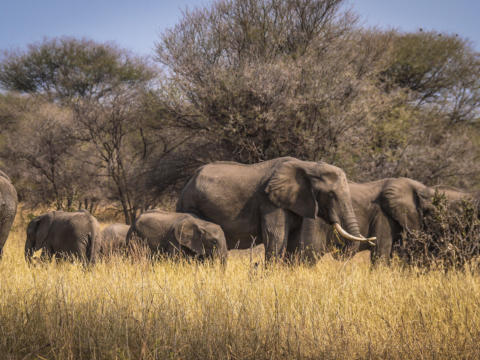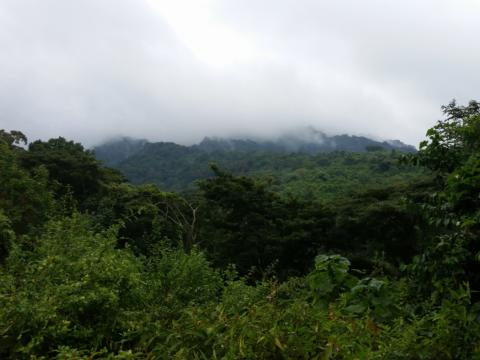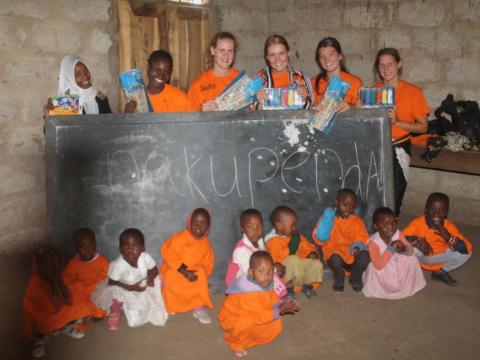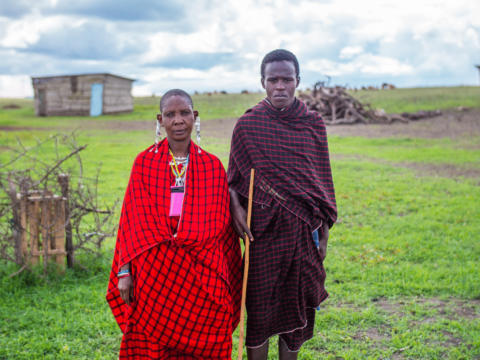Only 540€ per week!
Zanzibar Medical Placement
Stone Town - Tanzania
Be part of a medical program at the local referral hospital and gain valuable knowledge about healthcare services alongside local professionals.
This is a great opportunity for medical professionals and some prospective medical/nursing students to hone their medical knowledge about healthcare provision. Depending on your qualifications, you may also provide medical assistance to people from the community with limited access to healthcare resources.
Program Description
The local Hospital was started around 1923. It is situated at the heart of historic Stone Town and is right next to the state house of Zanzibar. It is the main referral hospital for both of the islands which make up Zanzibar. It consists of three different hospital buildings, the main one located at Mnazi Mmoja itself and of the other two, one is located at Mwembeladu (maternity hospital) and the other one is at Kidongo Chekundu (mental hospital). It provides most services available at many referral hospitals including, but not limited to: ENT services, OB/GYN, ICU, Pediatrics, Eye, general surgeries and many more.
As the main referral hospital, it is also the teaching hospital for health colleges and universities on the island. In this capacity this healthcare provider is a true resource for the communities it serves. Shortages of medical equipment and supplies contribute to a host of health problems in Tanzania, and this presents a tremendous challenge for achieving the third goal of the United Nations 2030 Agenda for Sustainable Development – Good Health and Well Being. Therefore, in order to be actively involved in the Hospital medical program, participants need to have some medical experience and/or background in order to shadow and learn more about healthcare service delivery. Based on your medical skill level and experience, you will be given a variety of tasks to help out in the hospital, thereby serving those with limited access to affordable quality health care.
Participants joining this program can contribute to the hospital by providing their knowledge and skills, and also by donating additional resources/supplies, helping to bridge the financial gap and supporting the local community members.
Some of the tasks/duties may include but are not limited to: observing and/or monitoring the patients, treatment techniques, and providing health outreach information, etc.
Aims & Objectives
- Support the hospital staff with medical assistance
- Add to your practical healthcare work experience
- Observe the medical practices of local staff at the hospital in Zanzibar
- Broaden your perspective of international medical care and treatment
Schedule
Monday to Friday
You will spend five hours or more each day assisting at the hospital with a lunch break in between. The day could look like:
- Breakfast
- Assisting with health care service provision at the local center/hospital
- Lunch
- Assisting with health care service provision at the local center/hospital
- Dinner
Note: This schedule can be changed and/or amended depending on weather conditions, local conditions and unforeseen circumstances.
Participant Criteria & Requirements
Standard Requirements
Minimum age: 18
Maximum age: –
Minimum English level: Basic
CRB required: On Signup
Passport copy required: On Signup
Resume copy required: On Signup
Required qualification: Medical Background
Additional Requirements
- You must have an established medical background – studying on a pre-medical track, medicine, nursing, pharmacy, occupational/physical therapy, or working in a relevant field.
- Recommendation letter from University for students
- Letter of good conduct
- Work Permit
Additional Equipment
- Modest clothing – covering the knees and shoulders is required while working
- Medical gloves, scrubs and masks for yourself
Location
Zanzibar is an amazing enigma that tempts you to explore it from end to end. It is a semi-autonomous region within the United Republic of Tanzania and it is comprised of two main islands, Unguja and Pemba, and a number of sparsely populated islets. After the 1964 revolution, Zanzibar joined with the then Tanganyika to form the United Republic of Tanzania. Zanzibar maintains its own government and is directly responsible for all non-union affairs, including health services.
Unguja Island covers an area of about 1,464 square kilometers and Pemba Island covers an area of about 864 square kilometers. The local people are a mixture of ethnic backgrounds. Islam is the dominant religion and practiced by most of Zanzibaris, although there are also followers of Christianity and other ethnic beliefs. Swahili is a local language used by people and is spoken extensively in Zanzibar. English is also spoken by many people.
About the Accommodation
You will be staying in a traditional and comfortable guesthouse with multiple bedrooms, communal bathrooms, a kitchen and one sitting room — suitable for enjoying the company of your fellow participants. Please note that all rooms are single gender. All meals will be provided at this accommodation.
Food Arrangements
Local meals that are typical of Zanzibari culture will be provided at this accommodation.
Facilities
You will easily find a few small local stores that sell snacks, drinks and any basic supplies you might need during your stay. Nearby, there are ATM's, banks, shops, a local pharmacy, etc.
Activities & Events
No scheduled activities outside the program.
Sights & Surroundings
Zanzibar
Zanzibar is known for its sandy white beaches and unique culture. While here, don’t miss Stone Town, a place that is emblematic for its mazes and spices (take a spice tour for sure!). Another must is a visit to Prison Island, where you can spot dolphins and marine life. Travel north or east of the island for some of the best and cleanest beaches in the world and enjoy the Indian Ocean at its best!
Transportation
From this location we do not provide free transport to other locations.
Quick Facts
Name: United Republic of Tanzania
Population: 52 million
Capital: Dodoma
Language: Swahili, English
Currency: Tanzanian Shilling (TZS)
Time zone: EAT (UTC +3)
Country Information
Tanzania is a large country in Eastern Africa within the African Great Lakes region. Parts of the country are in Southern Africa and it is bordered by Kenya and Uganda to the north; Rwanda, Burundi, and the Democratic Republic of the Congo to the west; Zambia, Malawi, and Mozambique to the south; and by the Indian Ocean to the east. It is home to Kilimanjaro, Africa's highest mountain, in its northeastern region and is considered the Safari capital of the world!
Tanzania is a presidential constitutional republic, and since 1996, its official capital city has been Dodoma, where the President's Office, the National Assembly, and some government ministries are located. Dar es Salaam, the former capital and its largest city, retains most government offices and is the country's principal port and leading commercial centre.
Climate
Climate varies greatly within Tanzania. In the highlands, temperatures range between 10 and 20°C during cold and hot seasons respectively.
The rest of the country however has temperatures rarely falling lower than 20°C. The hottest period extends between November and February (25–31°C) while its coolest period occurs between May and August (15–20°C).
Tanzania has two major rainfall regimes: one is uni-modal (October–April) and the other is bi-modal (October–December and March–May). The former is experienced in southern, central, and western parts of the country, and the latter is found in the north from Lake Victoria extending east to the coast.
Culture
Tanzania's large population is diverse, composed of several ethnic, linguistic and religious groups.
Christians and Muslims make up the large majorities, but 2% still practice Traditional African Religion.
Over 100 different languages are spoken in Tanzania, making it the most linguistically diverse country in East Africa. All four of Africa’s language families are spoken (Bantu, Cushitic, Nilotic, and Khoisan), but Swahili and English are its official languages, though Swahili is pushed officially as a unifying language, to the detriment of other minority languages, even English.
Transportation
Car
Although much of its roads are usually in poor condition, most transport in Tanzania is by road, 80% of its passenger traffic in fact. Rentals, Taxis, buses and mini buses (locally known as “dala dala”) account for the main methods of transportation.
Train
Tanzania’s railways have a spotty safety record and it is not uncommon to have passengers experience frustration with slow journeys, frequent cancellations and delays, but if you have the time – it is a unique way to travel with amazing landscapes decorating the backdrop!
Airplane
Tanzania has four international airports, along with over 100 small airports or landing strips; airport infrastructure tends to be in poor condition although there are reports of improvements in this area. Local airlines in Tanzania include Air Tanzania, Precision Air, Fastjet, Coastal Aviation, and ZanAir.





